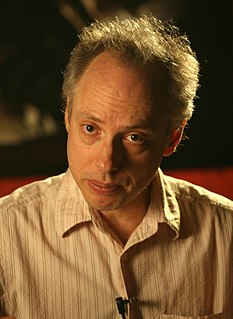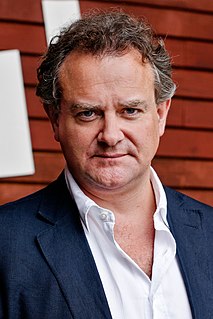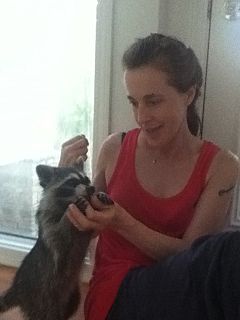A Quote by Sandra Cisneros
When I say what I'm reading, this is what I need. I know the ills that plague me.
Related Quotes
I don't have a formula. Every time an actor wants me to hold their hand, I hold their hand. If they say, "Stay," I say "Okay, respect." You know? "I'm right over here." A kid, if I need to give a line-reading, I'll start acting out the part for the kid and just mimic the kid. You know? Whatever it takes.
A word, and all the infinite fluctuations it may possess. Like that moment when you know you have something to say, and you know you're speaking, even, but you still have no idea how you will say it. Or the moment when, as a reader, you're reading, and you are understanding what you are reading, but still have utterly no idea what will come next for you, what precisely the author wants to say. For me, that is the ultimate level of literary depth, of literary density.
For the last episode [of Downton Abbey], you'll need some handkerchiefs. I needed handkerchiefs reading it. It wasn't because it necessarily moved me while reading it, but it was the experience of reading it when I realized it was the last time I was ever going to be reading one of those scripts. That was quite terminal.
When I know who is speaking, I see that there is a commitment. I need to know there is some commitment. I need to find an author. "I" can also be polyphonic, fictional, inhabited by a multitude of characters, be right or wrong or at fault or corrupted. But that's more "the self" than "me, me, me." It's problematic. There are times to say "we."
Avoid stock expressions (like the plague, as William Safire used to say) and repetitions. Don't say that as a boy your grandmother used to read to you, unless at that stage of her life she really was a boy, in which case you have probably thrown away a better intro. If something is worth hearing or listening to, it's very probably worth reading. So, this above all: Find your own voice.
Then there was sex, which, for me, was such a need. When I was younger, I had a need to have sex with everyone. I don't know where that was coming from, but there was such a need to connect physically - obviously, for me to connect physically to myself. There were times, like I say in the book, where you lay on top of me, when you push me down, when you're inside me.
I'd been reading Daniel Defoe's Journal of the Plague Year when the [1992 Los Angeles] riots broke out and I began to see them both - L.A. and the London plague - as the same event. A time of crisis. A time when rich and poor get thrown together - and, suddenly one sees alternatives. I began to think about what happens when the containment of a presumed danger through the regimentation of space breaks down, such as when South-Central L.A. began to invade Beverly Hills.



































